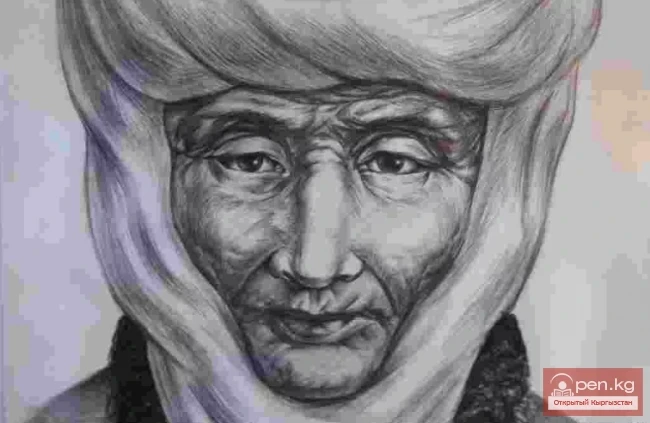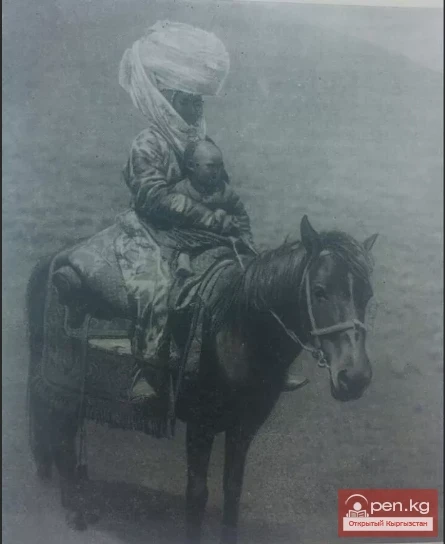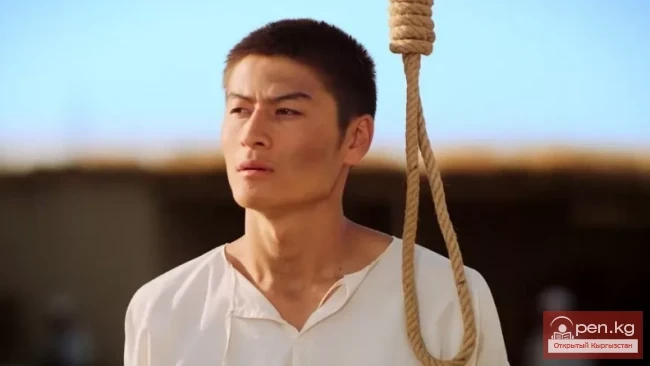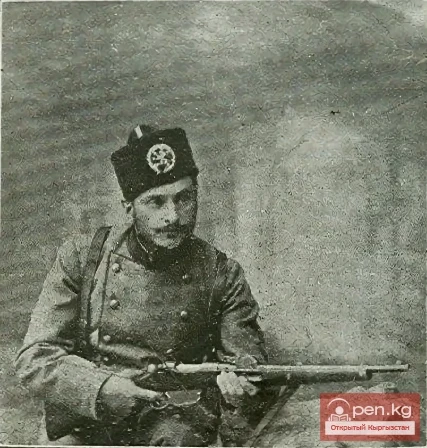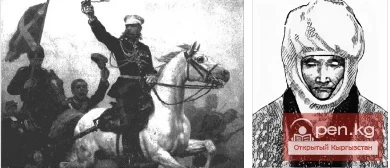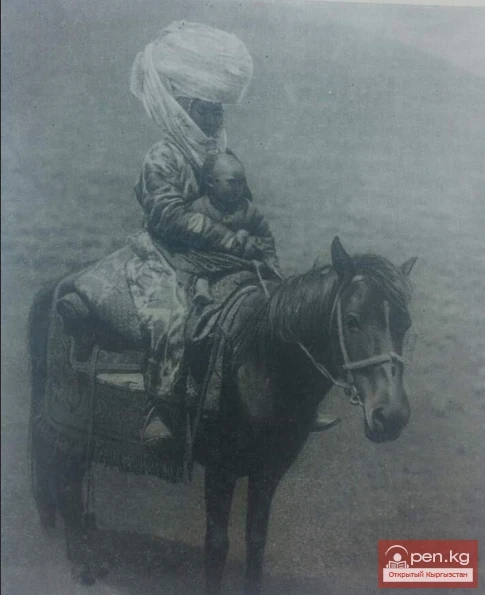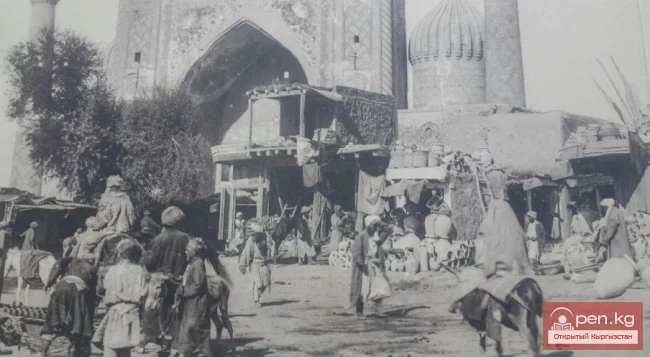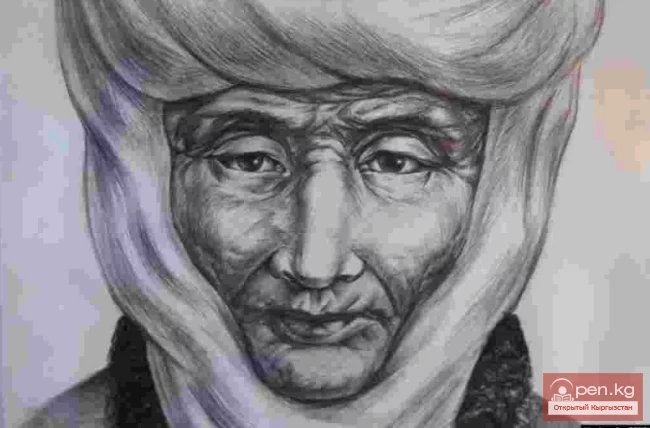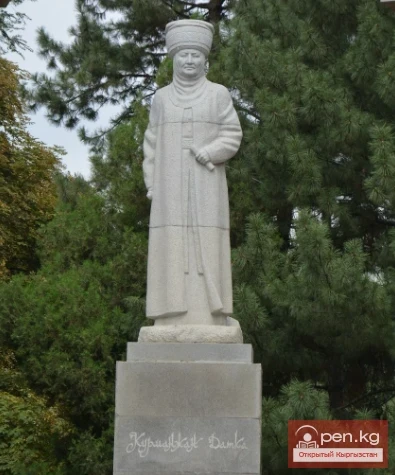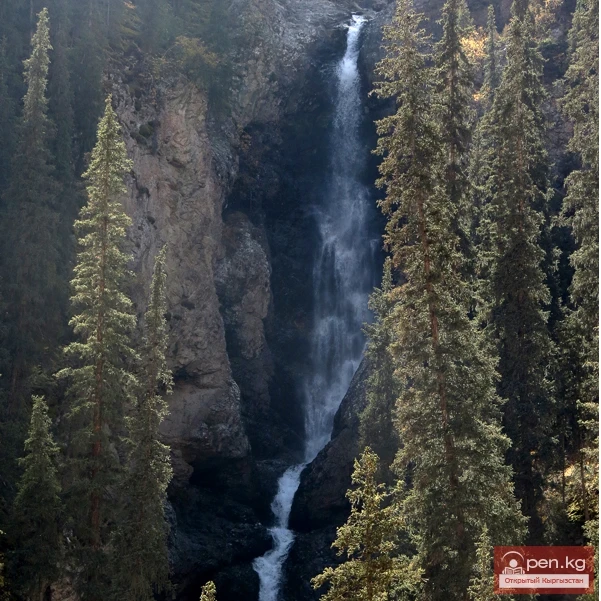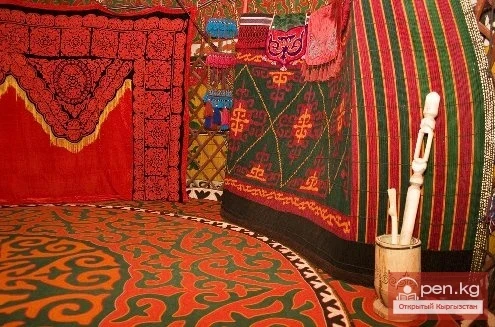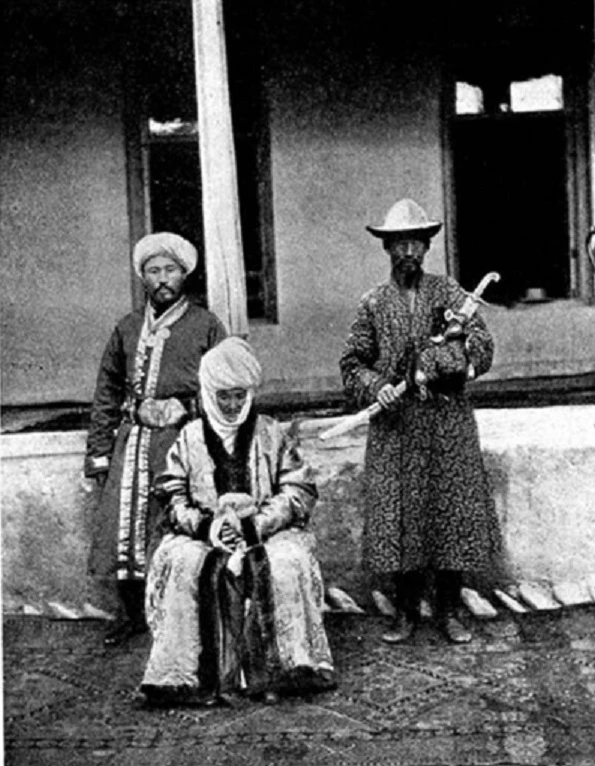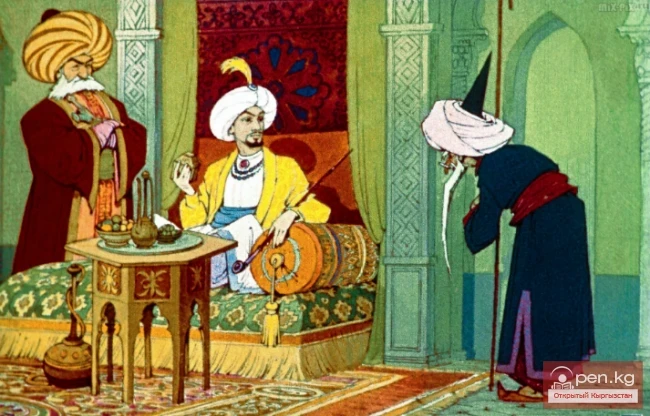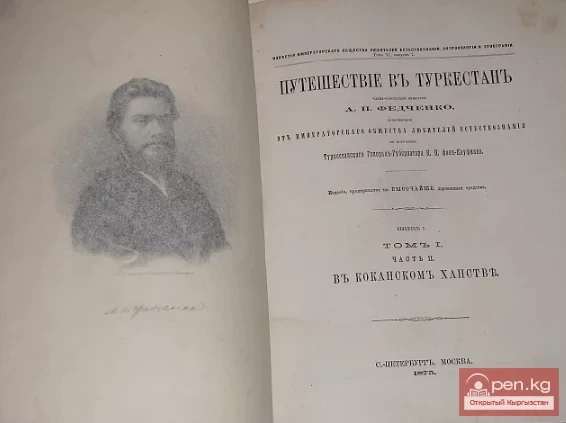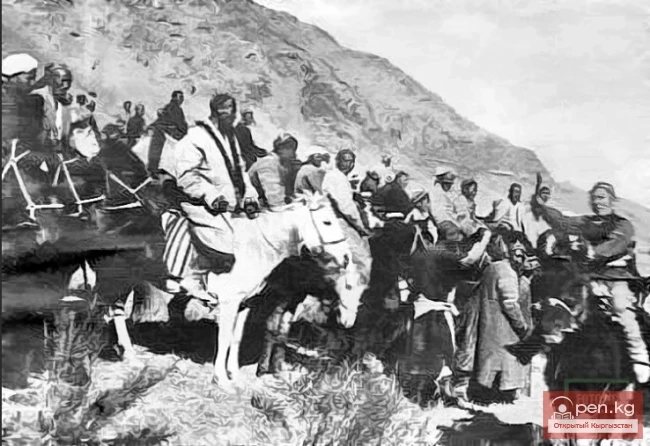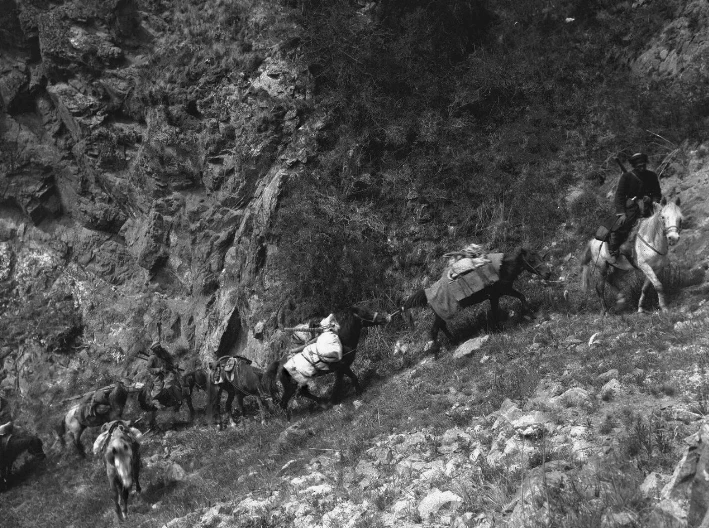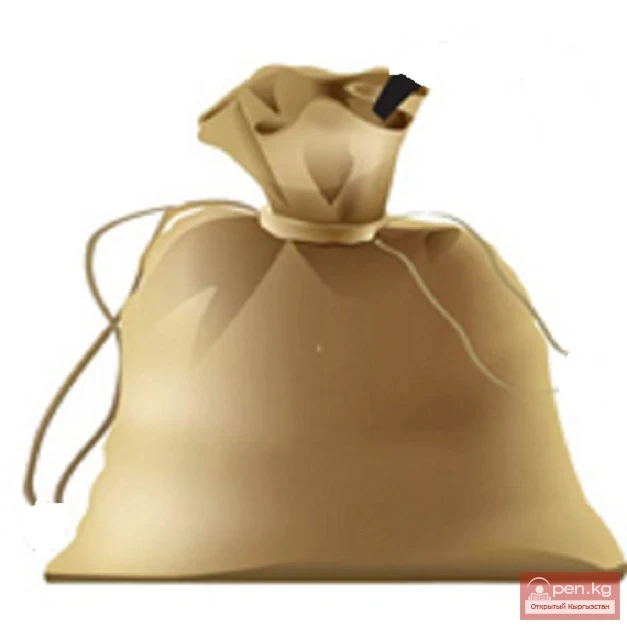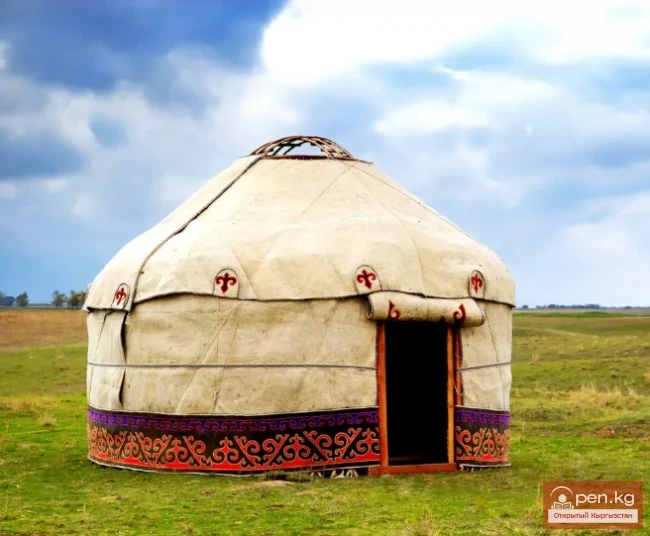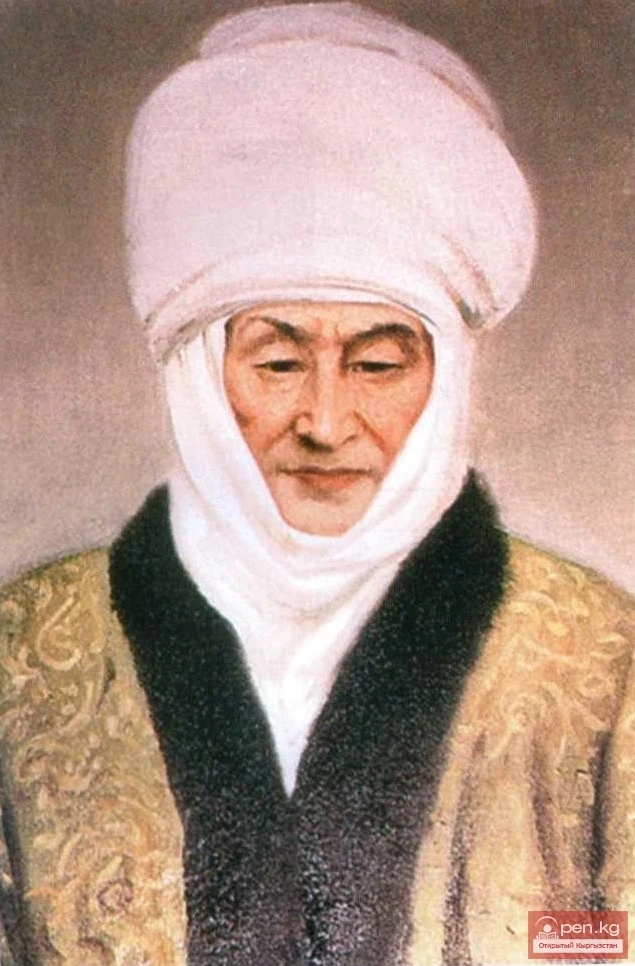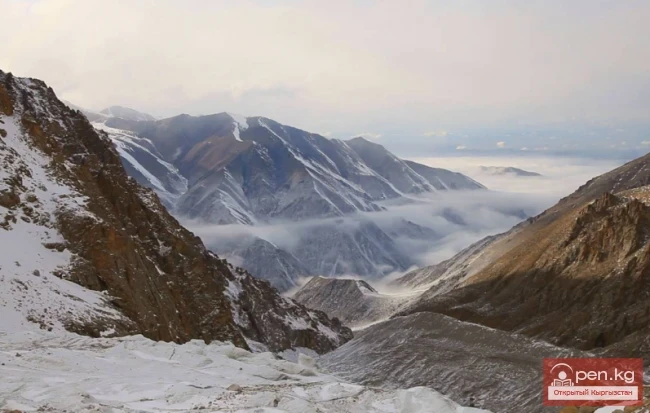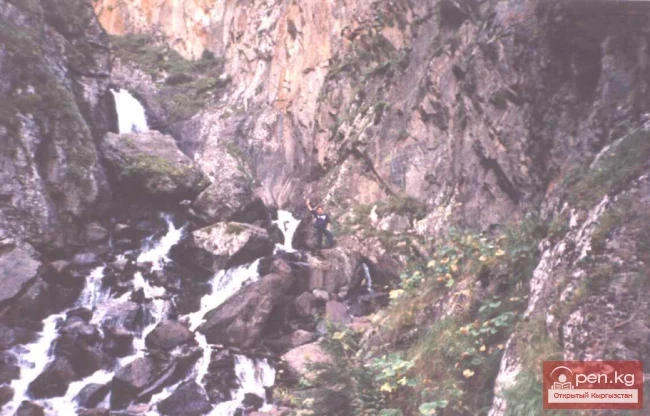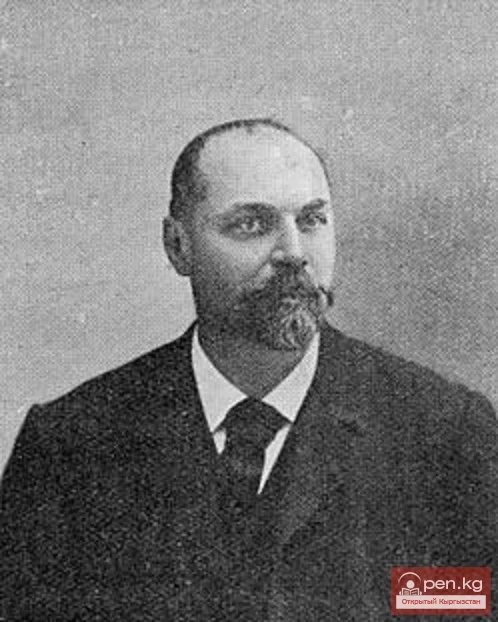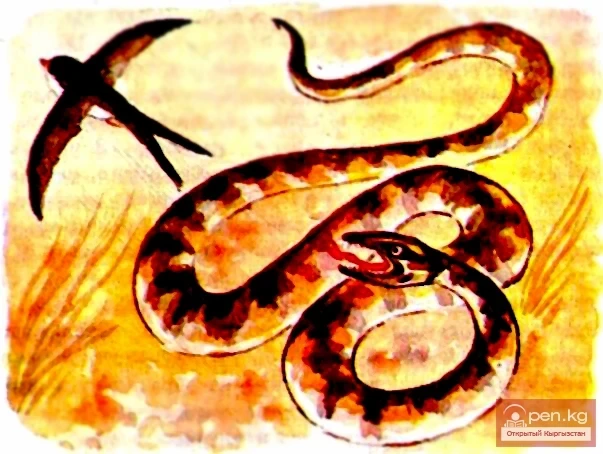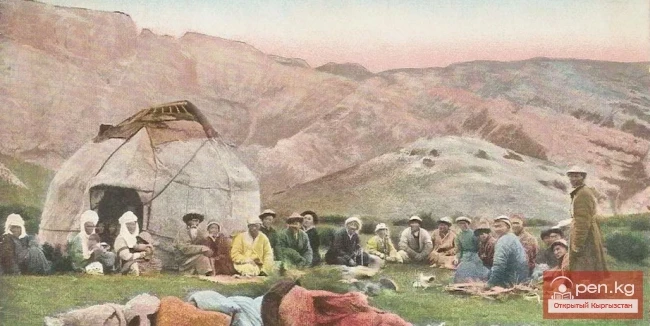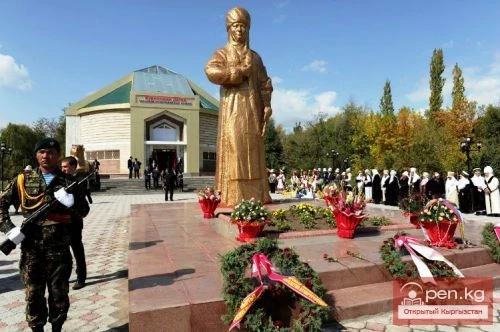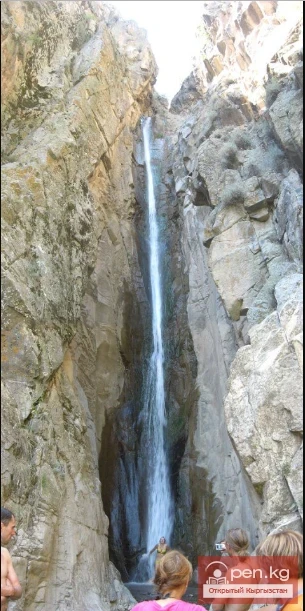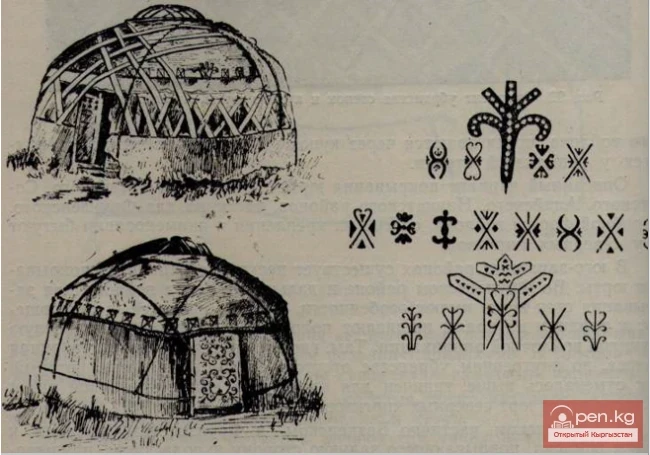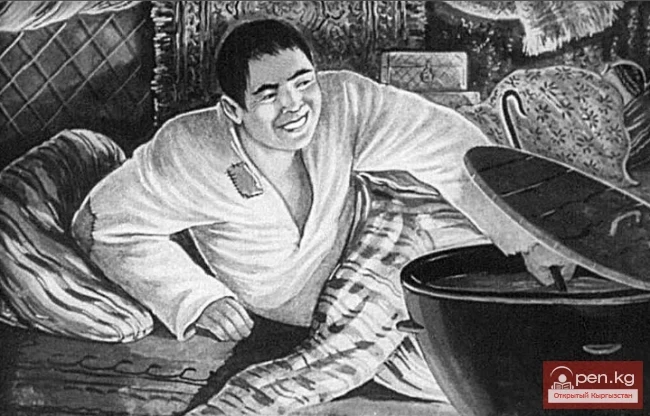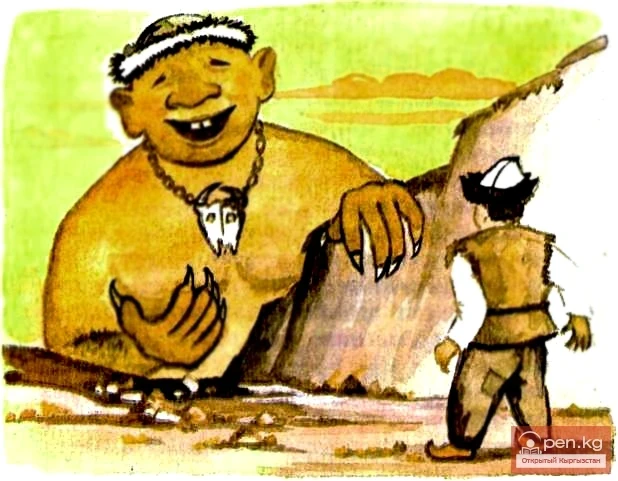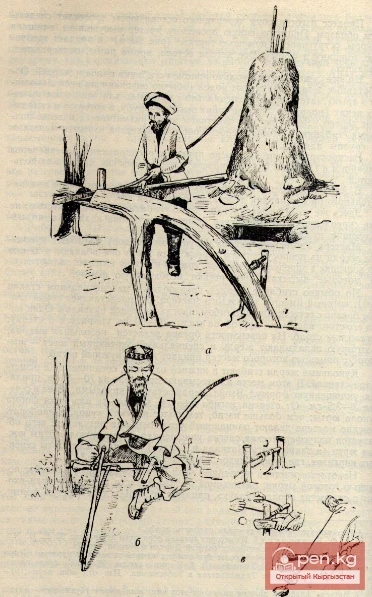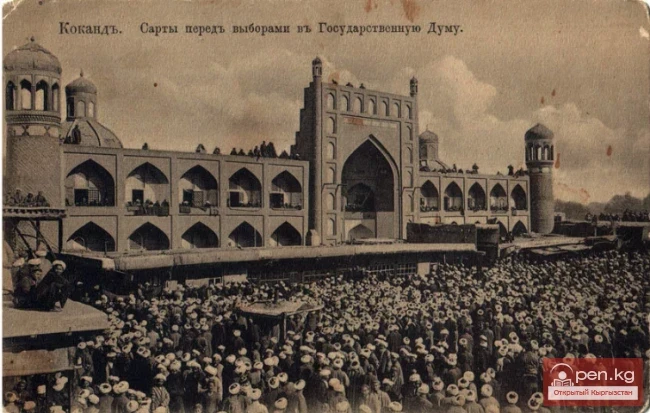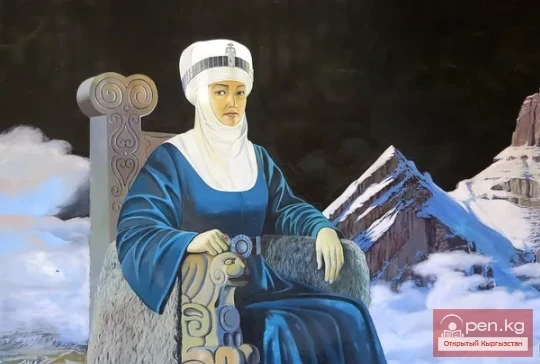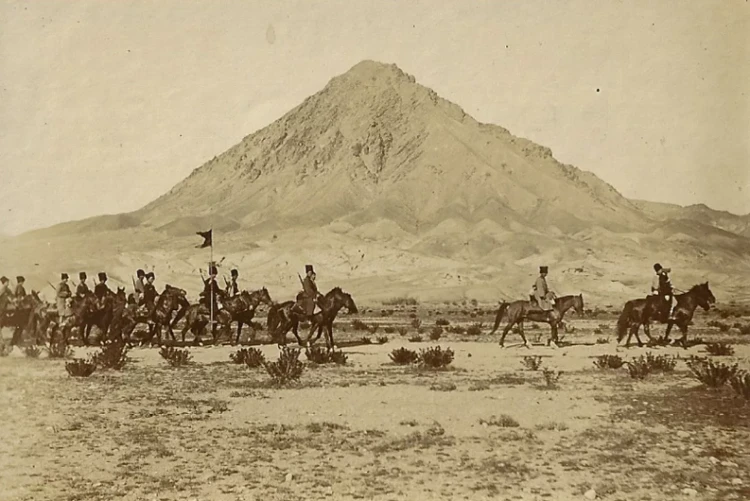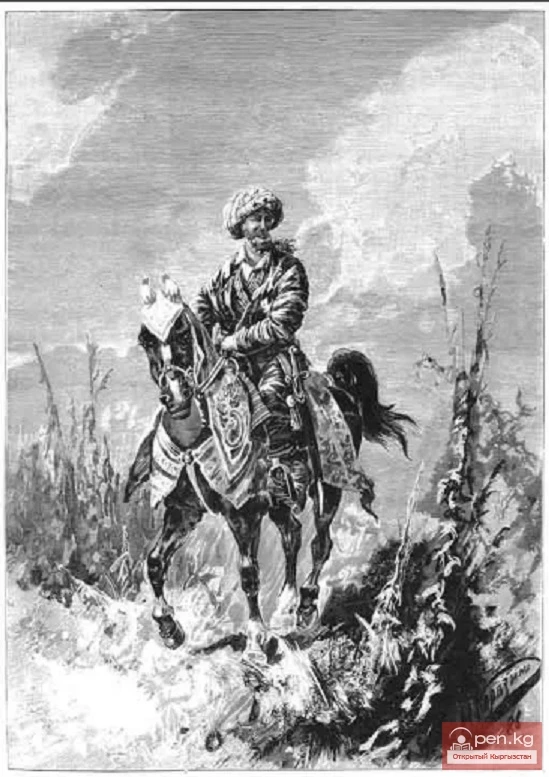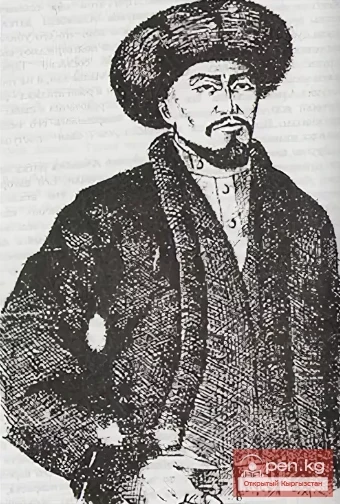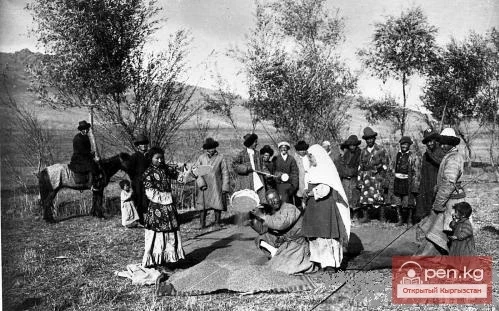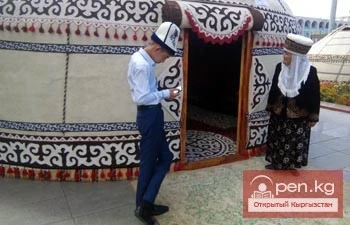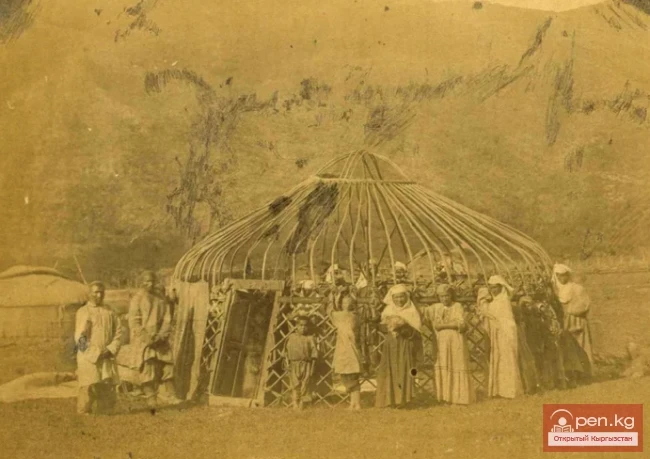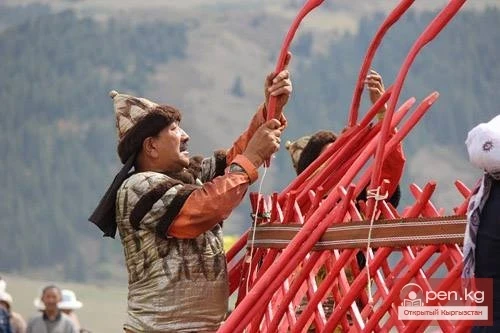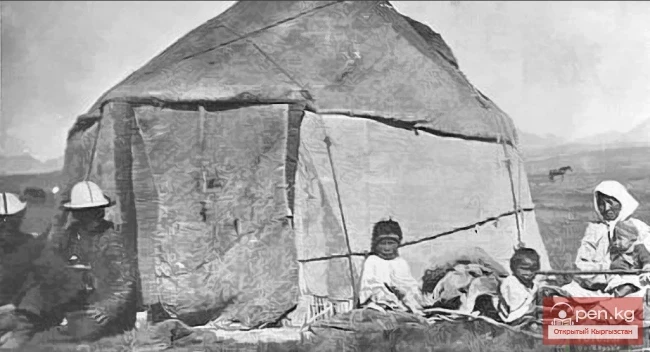The Grief of Kurmandzhan Datka
In the published essay "Queen Alaya" in "Niva," B. Tagiyev describes the legendary datka in a completely different, very lamentable state: "In one of the numerous gorges of the Alay Range, known as Yaga-chart, a small aul consisting of no more than a dozen yurts huddles under a steep high cliff. But this aul is not like other Kyrgyz encampments. A certain special order reigns here, and the yurts (kibitkas) flaunt beauty and luxury. The high, lush grass and the picturesque scattered juniper (a resinous tree of the fir family) please the eye. Numerous flocks of sheep and cattle, huge herds of horses and camels enliven this beautiful, albeit somewhat harsh landscape, giving it a softer hue. Near the foot of one of the mountains, not far from the aul, stands an old, small yurt, sharply contrasting with the other richly decorated kibitkas.
A few years ago, when I visited this corner of the formidable Alay, I found it bustling with life. Whole crowds of cheerful Kyrgyz surrounded me, flashing their white teeth. Now, in 1896, when I, as usual, was traveling in the Alay Mountains and stopped by this cozy gorge, I was immediately struck by the extraordinary silence reigning in Yaga-chart.
The same yurts, peeking out like gray mushrooms from the carpet of green grass, the same flocks of sheep, the same Kyrgyz women running with milk jugs to prepare kumys. All this was as before; but I did not see the same warmth with which the hosts of this aul used to greet me, I did not see their good-natured, chubby faces, and I felt an extraordinary sadness. Two Kyrgyz men in black sheep hats passed by me, casting an angry glance from under their brows, and disappeared into the door of one of the kibitkas; no one even accepted my horse, whereas before people would rush from all sides to take it.
Seeing an old man sitting near the yurt, I rode up to him and asked in Kyrgyz to take me to Kurmandzhan Datka's yurt. The Kyrgyz muttered something under his breath, shook his head reproachfully, and moved ahead, showing me the way. Approaching the small, standalone yurt, he pulled back the skin that covered the entrance to the kibitka. A sour, rotten smell wafted towards me. I looked at my guide in surprise, thinking that he had misunderstood me and brought me to some other yurt, but he seemed to guess my thought and, pointing to the door, said: "Мына датка" ("Here is the datka"). I bent my head and entered the yurt. The darkness inside and the sharp transition from light to darkness did not allow me to immediately see the interior of the yurt, but the attentive guide pulled back a piece of skin covering the tünteyk (the upper opening of the yurt), and I was struck by the sight before me.
Three steps away from me, on the bare ground, in terrible rags through which a dry black body was visible, sat a small, pitiful old woman; her sparse gray hair was covered with some pathetic little tails over her wrinkled, baked apple-like face. She fixed her small, watery eyes on me and, smacking her toothless mouth, mumbled some words. I squatted beside her and uttered the usual greeting. She looked at me wildly and suddenly burst into her old, rattling laughter. A chill ran down my spine from that laughter... And this is the datka, this is the former queen of Alaya, before whom the Khans of Kokand trembled, whose one word was enough to execute or pardon? This is the same datka who, surrounded by her sons, welcomed me with genuine joy, who just two years ago, at the age of 90, traveled 70 versts without rest and whom I saw in 1985 still quite vigorous and healthy... My God, what has she turned into now! It became extraordinarily heavy for me, and I quickly ran out of the yurt and jumped on my horse, heading towards my waiting companions, recalling the datka and her life, full of deep tragedy.
Thus, the writer captured the Alay Queen at the most tragic moment of her life. The circumstances of the arrest of the son of the clan leader Kamchybek, according to B. Tagiyev's description, were as follows: "... the investigation revealed that our (anasha, marijuana - Note by V.P.), which was being transported to Kamchybek by smugglers, was detained by a customs inspector: the latter initially agreed to compromise with the smugglers but then changed his mind and was strangled by them, unable to defend himself, as his revolvers and those of his horsemen were out of ammunition.
It was said that Kamchybek was involved in this case, but there was no concrete evidence, and the case was postponed by the regional court for further investigation." Furthermore, as the author continues, the lack of evidence did not affect the decision to execute Kamchybek. Moreover, representatives of the judicial authority did this more for political reasons: "The new military governor Povalov-Shvyikovsky made a cruel mistake by requesting the field court to try the beloved beks of all. As the governor said, he did this to raise Russian prestige, which he thought had fallen. The general was cruelly mistaken: the Sart and Kyrgyz had become accustomed to respect Russian authorities, and there was no noticeable decline in the significance of Russians in the region."
Faces of the Clan Leader of Alaya
